The Best Time-Travel Films Ever Created
The Best Time-Travel Films Ever Created
Updated on August 11, 2022 11:07 AM by Laura Mendes
How frequently time travel movies involve going back in time rather than traveling to the future must surely say something about humans. The mission has to do with regret, as the despondent character played by Mark Duplass puts it in Safety Not Guaranteed. Despite having the potential to explore the uncharted territory of the future, our minds' attempts to bend the laws of time frequently result in a repetition of the past. It's captivating to watch a movie character accomplish what we are unable to, such as make amends for past wrongs or find the meaning or purpose behind life's events, whether they are emotionally devastating or merely geopolitically motivated.
In fact, the future is so absent from the canon that whenever it is mentioned, dwellers there are usually traveling back in time to the present. Leaving aside the events of Back to the Future Part II, it seems humans cannot move forward in time.
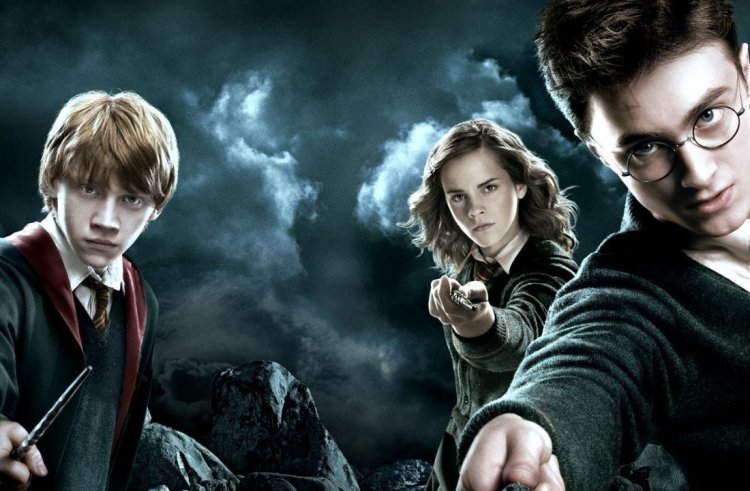
In any case, the mechanics of time-travel stories considered worthy of Hollywood budgets aren't always obvious. Some of the movies on this list hardly count as time-travel movies at all, while others hardly fit any other category. Andy Samberg used the term "one of those infinite time-loop situations you might have heard about" in Palm Springs to describe a situation where time is bent, fractured, or muddied. There are films about time travel as well as ones about the bending, fracturing, and muddying of time. In one movie, time travel only lasts for 13 seconds, acting more like a joke with a punchline that occurs at the movie's climax.
All of these movies share a fascination with altering the course of time. In spite of this, the list omits films from bigger, longer-running franchises where time travel is a one-time fling thrown into a sequel with little in the way of foreshadowing. (It may also omit the excellent Midnight in Paris and the original time-travel film Primer because their directors don't merit the column inches.) Examples include Men in Black III, Avengers: Endgame, and Harry Potter and the Prisoner of Azkaban.
Arrival (2016)
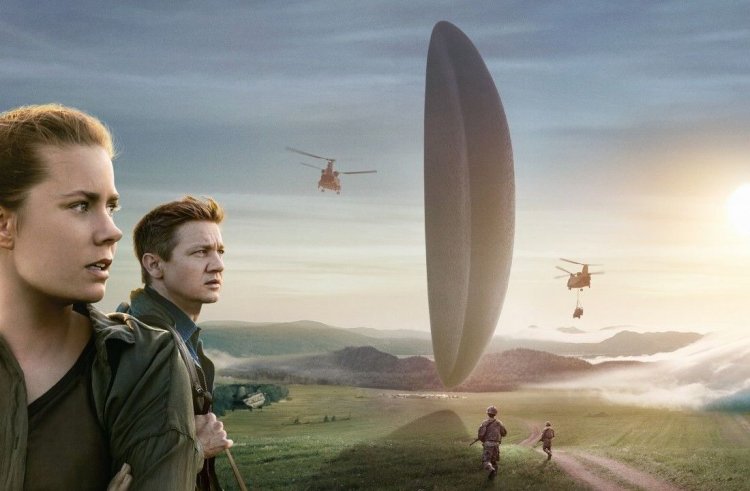
It's reasonable to question whether Arrival is, in fact, a time-travel film. It is based on a Ted Chiang short story that explores alternative ways to understand time rather than time travel itself. The Amy Adams-played linguist protagonist learns to experience time differently rather than traveling through it. However, the plot ultimately depends on knowledge that she gains by actually experiencing her future simultaneously as her present and past, rather than through visions. But for our purposes, that's time-wasting enough to merit inclusion, and boy does the movie deliver on quality in general. That partially just comes down to the source material. The most gifted (and perhaps most honored) American science fiction author of his generation is unquestionably Chiang. However, the source material is not particularly suited to Hollywood, so director Denis Villeneuve has lovingly adopted it and added some third-act blockbuster flavor by stealing a plot device from another of Chiang's stories, the more straightforwardly time-travel based "The Merchant and the Alchemist's Gate." The end result is a stunning meditation on love, decision-making, and bravery that infuses an original sci-fi blockbuster with an art-film ethos.
Add Block
Terminator 2: Judgment Day (1991)
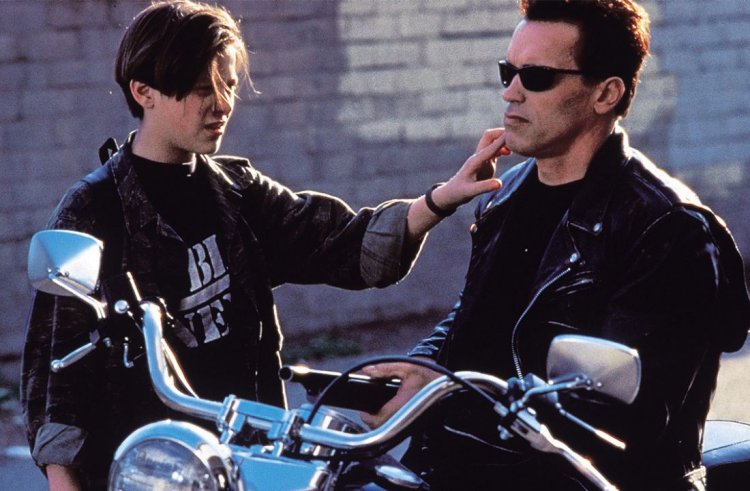
The second film in the franchise is more focused on the action than the first, which spent more time discussing the issue of time travel. It's difficult to criticize T2 director James Cameron for this choice because the film, along with Jurassic Park and The Matrix, is still one of the best action films of the 1990s. A tween John Connor debating predestination and the fact that he is indirectly responsible for his own conception feel almost like icing on the time-travel cake; the ground-breaking T-1000 would honestly be enough to get this movie on the list. Similar to 12 Monkeys, time travel is misconstrued in this instance as an illusion as brave Sarah Connor fights the future that only she knows coming in a Cassandra-like nightmare. Of course, Cassandra never had access to any of the weapons kept in secret underground arsenals in the desert.
Interstellar (2014)
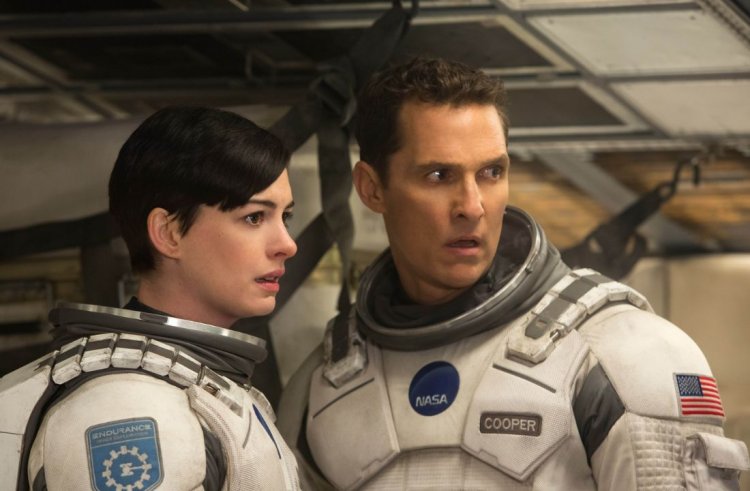
Christopher Nolan is a filmmaker who, it is fair to say, is more interested in scale and scope than in capturing the intricacies of the human experience in its most basic form. However, the central theme of time travel in Nolan's Interstellar is wrought not as sci-fi fireworks but rather as an elegy to the sheer power and will of love. Depending on your tolerance for cheese in space, it either works or doesn't. Nevertheless, Nolan's use of time as a plot device, particularly how Miller's planet operates, is conceptually brilliant in the best possible way for a time-travel movie.
Add Block
The Terminator (1984)
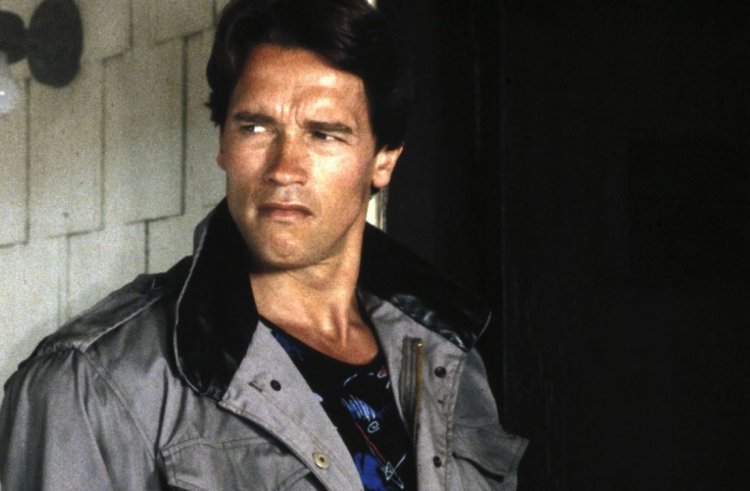
The Terminator, which co-created sci-fi noir with Blade Runner in the middle of the 1980s, is a stunning movie in many ways, even with its third act's dated visual effects. The role of the unrelenting, emotionless killer cyborg sent back in time to kill the mother of the eventual resistance leader is perfectly suited for Arnold Schwarzenegger, and the movie's romantic subplot has just the right amount of time-travel-related cheesiness for it to work. Although it isn't James Cameron's directorial debut and would ultimately be surpassed by its sequel, it serves as an outstanding showcase for an up-and-coming young director who would only ever focus on big stories for the rest of his career.
Add Block
Tenet (2020)
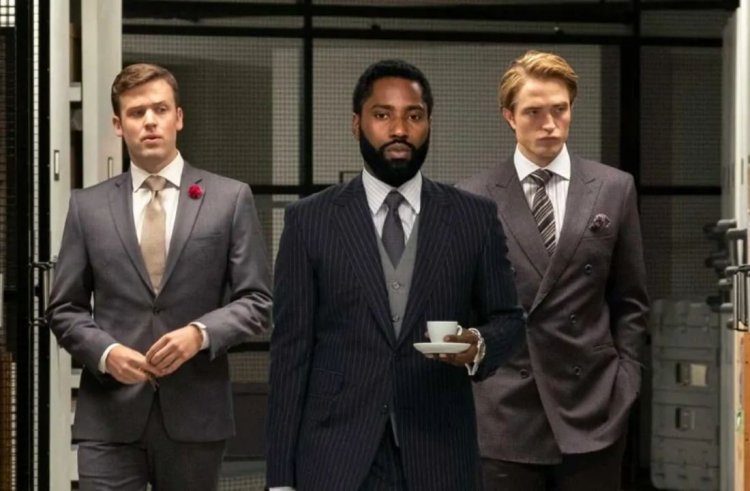
Chris Nolan apparently thought Interstellar wasn't good enough. Tenet's legacy might amount to little more than the COVID action film that nobody saw; a bloated thriller that Nolan reportedly fought to get into theatres and prevent from being watched at home in order to enlarge the size of his own pockets. This is a classic big-screen popcorn movie whose absurdity is all the more tolerable when given the audiovisual bombast it deserves, so it really did suffer from bad timing. Tenet is ambitious in scope as it depicts a war waged on the past by the future (yes, you read that right). Tenet is as fond of action clichés as it is of defying them, and its dedication to making the mind-bogglingly complex mechanisms of time travel visible is commendable, even though the film itself is as opaque as the future and as hazy as the past.
Palm Springs (2020)
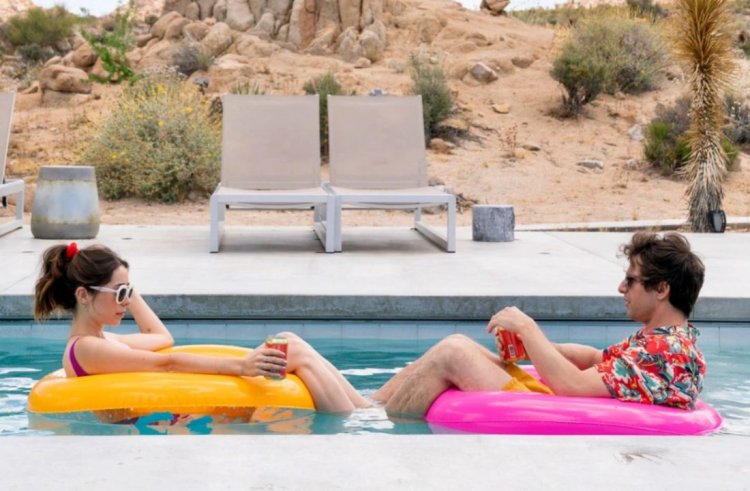
No offense to Gen-Xers and Baby Boomers, but Palm Springs is the greatest time-loop film ever made. While the movie has its flaws, overall, it is much more curious about life than Murray's misanthropic Groundhog Day was. The characters of Cristin Milioti and Andy Samberg, who are both trapped in the same situation, are the ideal comic foils, and their shared humanity creates a touching storyline. In light of the fact that nothing lasts, the movie asks what is worthwhile doing in life and how to maintain one's sanity when every day is the same. Of course, since it contrasts Tenet in some ways and speaks about the lockdown experience, it benefited from the pandemic by being released simultaneously.
Add Block
Back to the Future (1984)
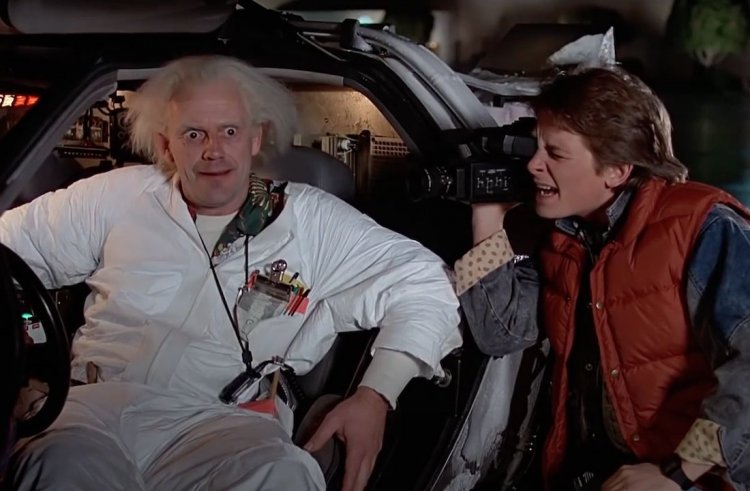
The first, Back to the Future, is a bit of a mess, even though it is unquestionably better than the sequel (and miles ahead of the trilogy's concluding film) (John Mulaney was right, to be honest). The incest subplot is strange, and its racial and gender politics are offensive ("It's your cousin Marvin. Mr. Pornhub. You know that new plot element you've been looking for?"), but there is a clear interest in time travel beneath its glittering surface: the very real addressing of the "grandfather problem" in time travel through the gradual disappearance of Marty from his family photo, the unintentional invention of rock music, and a genuine curiosity about the nuts-and-bolts mechanics of time machines. What the hell, I see. This is a romp.
Add Block
Donnie Darko (2001)
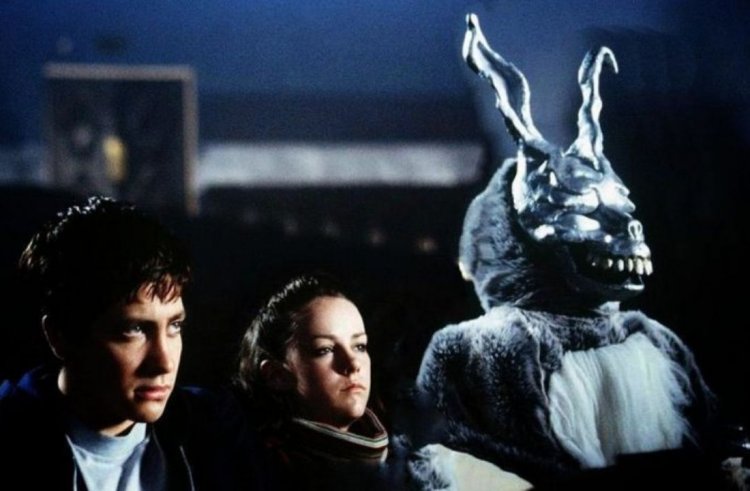
A little bit of a genre mash-up is Donnie Darko. It's risky to watch high school students negotiate wormholes, parallel universes, and time travel, but director Richard Kelly manages to pull it off. It's a strangely successful piece of filmmaking that makes great use of a young Jake Gyllenhaal, a great supporting cast (including Maggie Gyllenhaal, Drew Barrymore, Jena Malone, and Patrick Swayze, among others), and an absolutely iconic haunting cover of Tears for Fears' "Mad World."
Looper (2012)
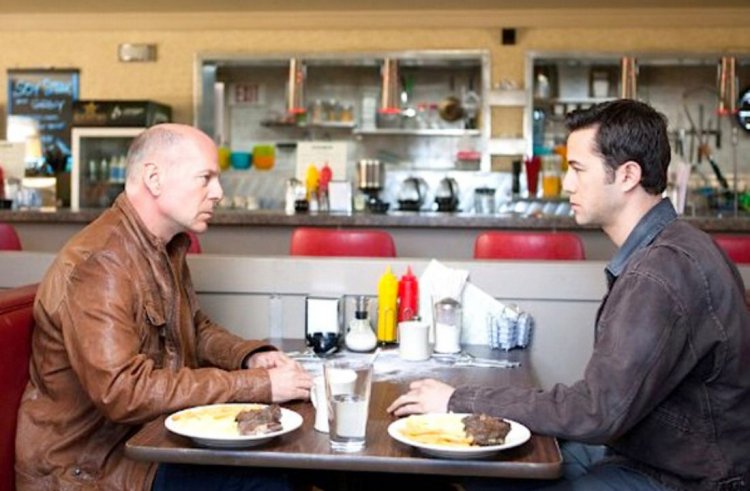
Wes Anderson receives a lot of criticism for his overdone, twee visuals. Still, Rian Johnson has a talent for creating films that, despite their outward appearance, feel and work like dioramas. Narratively speaking, everything is put together precisely as it should be. There is a certain beauty in that, but has anyone ever had a profound artistic experience viewing a diorama? Since the temptation to drastically over maneuver the mechanics of a time-travel story can have disastrous results, Looper was probably Johnson's least prized pre-Star Wars movie. The technology used to simulate Bruce Willis' face on Joseph Gordon-Levitt is distracting, and the film struggles to make sense of the third act's retreat from the postapocalyptic city of the future to the postapocalyptic corn farm of the future. Johnson's compelling portrayal of a world where organized crime controls time travel is still fascinating and well worth seeing.
Add Block
Predestination (2014)
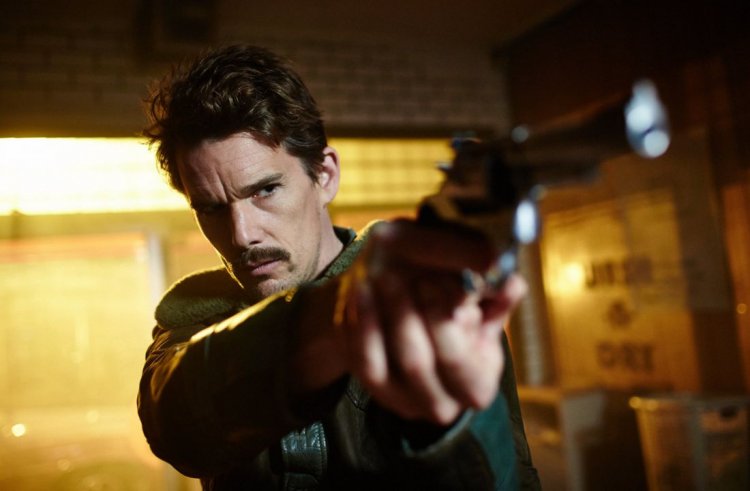
The most difficult movie on the list is probably this one. Based on a short story by Robert A. Heinlein, it follows a "temporal agent" (played by Ethan Hawke) who is attempting to stop a bombing in 1970s New York and stars Shiv Roy herself, Sarah Snook, in a breakthrough role as a character with a complicated past and a secret. The movie's premise, like the best science fiction, raises a tonne of fascinating questions about the titular idea while also including some thought-provoking observations about sex, gender, and the self.
Add Block
Groundhog Day (1993)
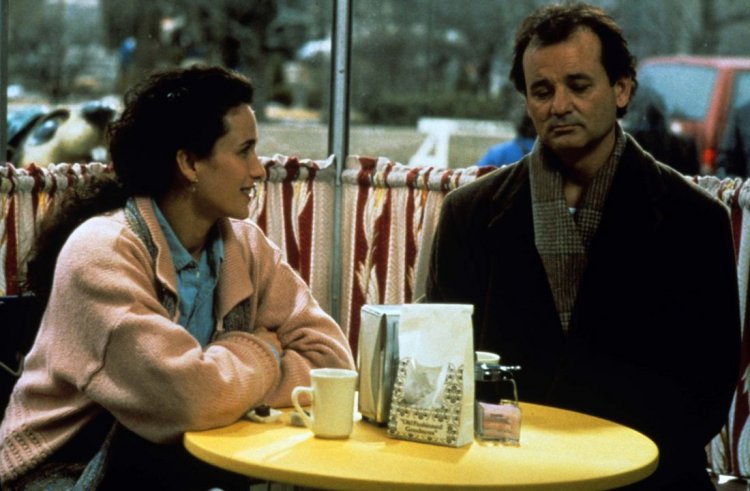
It's not a movie that succeeds on the strength of its concept alone, but the iconic Bill Murray vehicle effectively invented the infinite-time-loop genre. However, the idea at its core is so ingrained in the casual misogyny of the late '80s and early '90s cinema that it's difficult to watch today without cringing. It just doesn't have the same impact as it did in the past when Murray's character repeatedly uses PUA-style tactics to fuck his helpless coworker. This would be much higher on the list if the plot didn't emphasize that a 20th-century white man must purge himself of the worst aspects of masculinity in order to be worthy of a woman's love.
Planet of the Apes (1968)
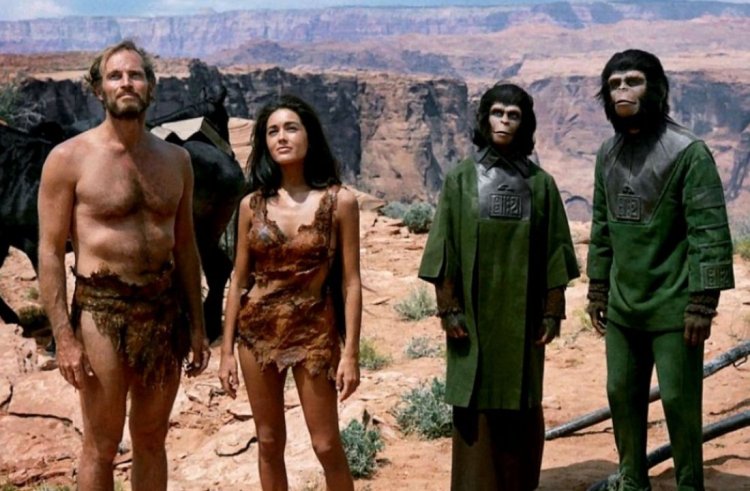
The relationship between the original Planet of the Apes and time travel is ambiguous; technically, the astronaut crew that lands on the titular planet do travel forward 2,000 years, but it is not accomplished via a time machine. Even though they are unconscious and on life support, the journey there takes them literally 2,000 years. This is in contrast to the worse but more overtly time-traveling Tim Burton remake. Even so, how the movie ends and handles the iconic reveal is exactly in line with the best time-travel canon, giving you the feeling that the world is changing before your eyes without you having to move an inch.
Add Block
La Jetée (1962)
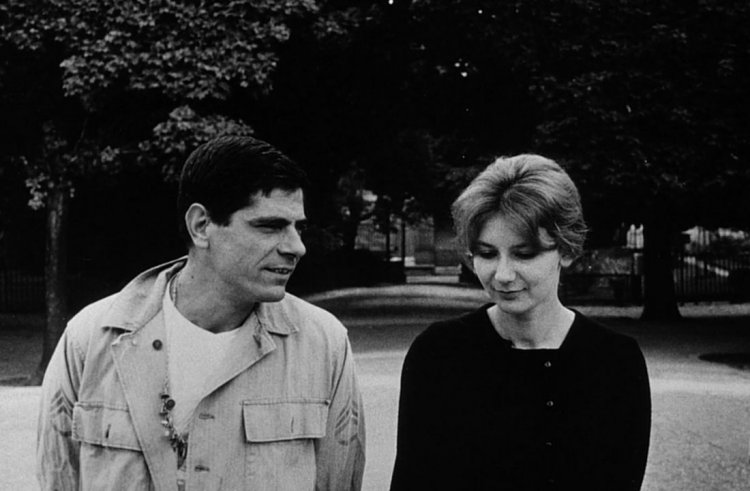
La Jetée's 28-minute running time makes it questionable whether it belongs on this list. It would be a travesty to leave it out in favor of more recent by-the-book fare because what it lacks in content (and in, well, moving images; it's almost entirely a collection of static black-and-white shots set to voice-over), it more than makes up for in inventiveness and influence. In order to change the postapocalyptic state of the world, a man held captive in post-WWII Paris is used in time-travel experiments. He is sent into both the past and the future, solving a long-standing personal mystery while doing so.
Add Block
Safety Not Guaranteed (2012)
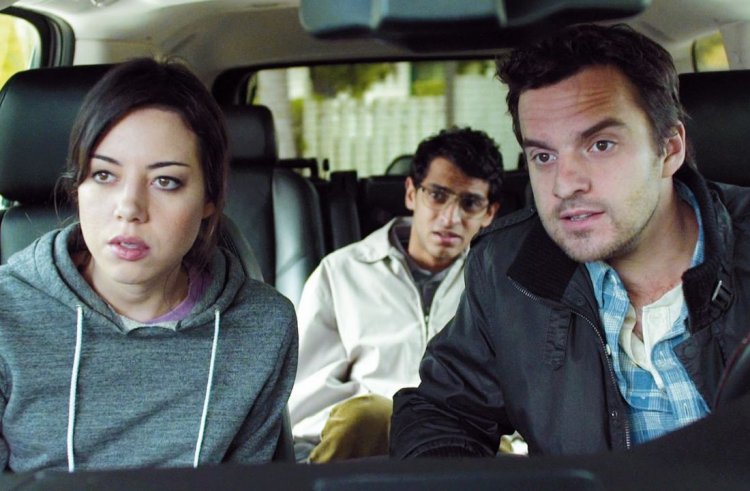
Although Aubrey Plaza may not be the most well-known, honored, or imitated actress of her generation, her personality spoke to the 2010s in a whole way. She portrays essentially the same role in Safety Not Guaranteed as she did in April Ludgate, the character she played on Parks and Recreation, which was purportedly created specifically to translate Plaza's real-life personality to the screen. She is a sarcastic magazine intern who is working on a story about a potential time traveler. She is using her feminine charm to win over his trust. The movie's strongest point is probably the chemistry between Plaza and Mark Duplass; the subplot involving the FBI feels like it was taken straight out of a subpar X-Files episode.
The Girl Who Leapt Through Time (2006)
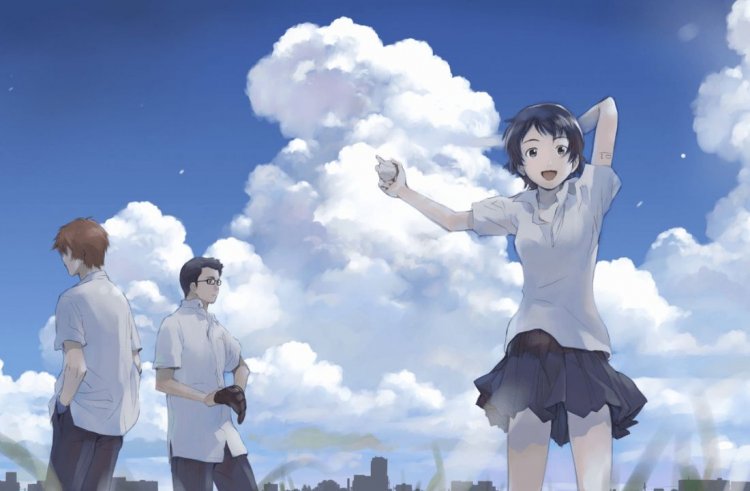
What makes capturing the flow of time and bowing it in so special if you can Looney Tunes your way through physics? In animated movies, time travel is relatively uncommon, which may be due to the fact that it's less impressive to stage in an already fantastical world. Nevertheless, the first Girl Who Leapt Through Time merits a mention in this context. It's a lovely story that weaves together the complexity of time travel with the intensity of teenage emotion and the difficult process of growing up, where the chance to start over leads to grow over time. In a way, it's like a less depressing Groundhog Day.
Add Block
Star Trek (2009)
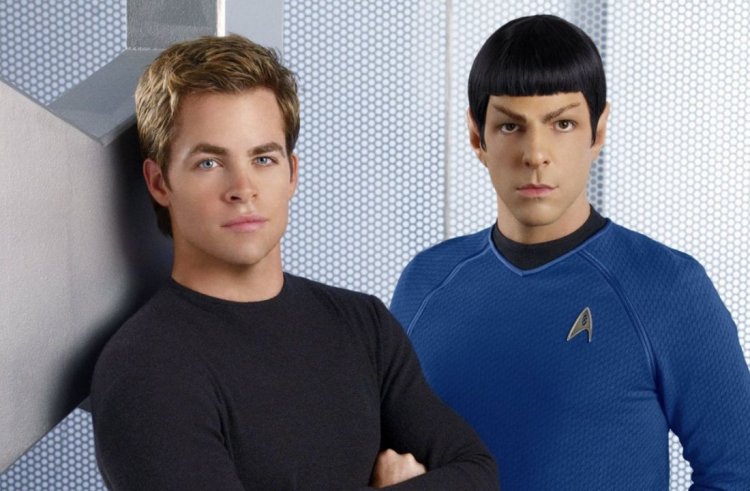
J.J. Abrams would have to be near the top regarding his ability to rig up movie drama from virtually nothing if there were some kind of advanced stat to track controversy generated per unit of interesting filmmaking decisions. His filmography consists of Godzilla knockoffs, Spielberg tributes, safe reboots of beloved properties, and so on. However, Star Trek, a deft reimagining of a nerdy sci-fi franchise that made it, well, cool, maybe his best work. It sort of... works that Spock and Kirk's bromance is woven through unplanned meetings with their future selves.
Add Block
Edge of Tomorrow (2014)
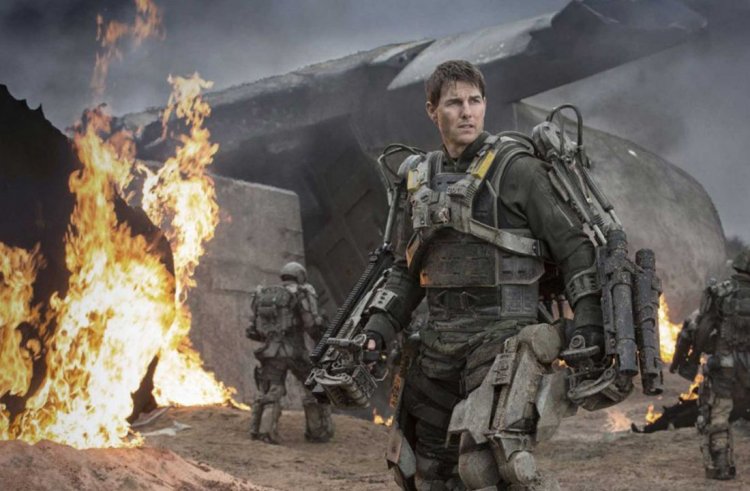
Groundhog Day's central idea's adaptability and repeatability are among its most striking features. Edge of Tomorrow, also known as Live, is arguably the best example. After its original tagline, "Die. Repeat." Only an actor as genuinely insane as Tom Cruise could pull off a physically taxing film. As a noncombatant forced into a conflict with alien invaders, Cruise's character finds himself repeatedly reliving the first day of battle and gradually improving his tactics to withstand the alien assault. He teams up with Emily Blunt, who is also trapped in time, and ends up with a partner in (war) crime, similar to the central couple in the much less violent Palm Springs. This explanation for the replay glitch is actually quite satisfying.
Run Lola Run (1998)
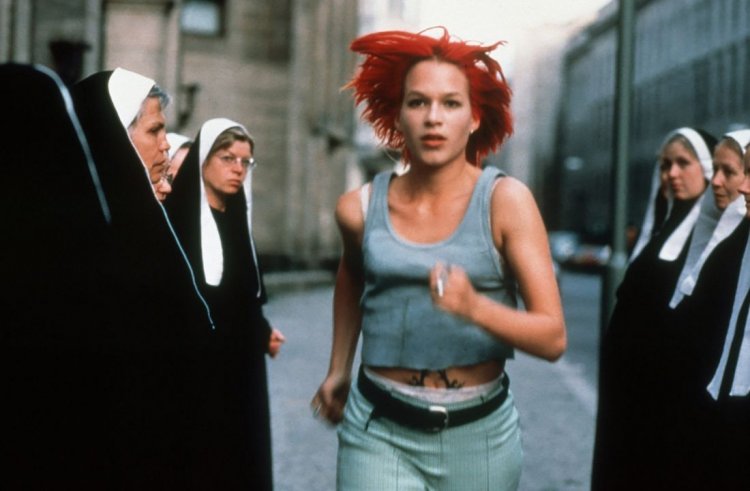
Run Lola Run is the only movie on this list where the words "time travel" and "time machine" don't appear once. Instead, it's more like a de facto time loop where the main character keeps trying to pay a ransom to save her boyfriend's life. In fact, it could easily be categorized—and frequently has been—as an alternate-endings movie rather than a time-travel movie, if only for a few crucial details. But the fact that Lola seems to be learning from her mistakes with each subsequent attempt suggests that she uses the information from earlier loops to resolve this situation satisfactorily.
Add Block
12 Monkeys (1995)
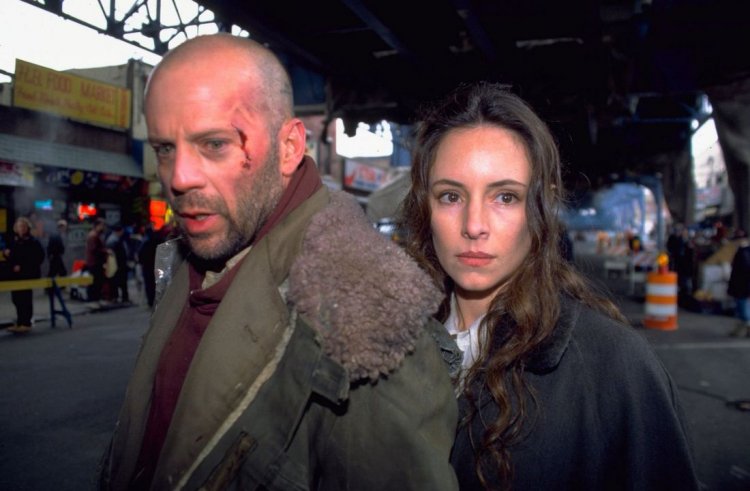
According to some natural law, every genuinely good idea and/or work of true art must eventually be made into a Hollywood film. Thank God La Jetée was transformed into a work of art that can stand on its own. Although 12 Monkeys does not maintain the black-and-white aesthetic or the simplified, static-image presentation of its source material, it is still a tonne of fun. That's largely thanks to director Terry Gilliam, who brought out the best in Bruce Willis and a young Brad Pitt and recast World War III as a virus that decimates entire planets. Which "speaks to the present moment," or whatever, like at least one other film on this list.
Add Block
Source Code (2011)
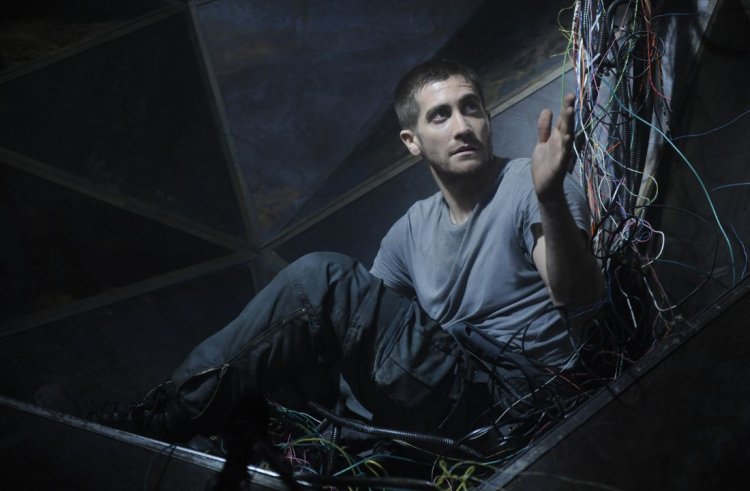
Jake Gyllenhaal won't be the only actor on this list, as fans of time-travel movies are aware, but that doesn't matter. As he searches for the person responsible for a train bombing in Source Code, he repeatedly plays the same eight minutes, each time dying in an explosion. The core idea is a compelling blend of the time-loop movie and the train whodunit, and Gyllenhaal is the ideal fit for it. Unfortunately, a romantic subplot and a tonne of frankly unnecessary technical jargon are forced into this.
Bill & Ted's Excellent Adventure (1989)
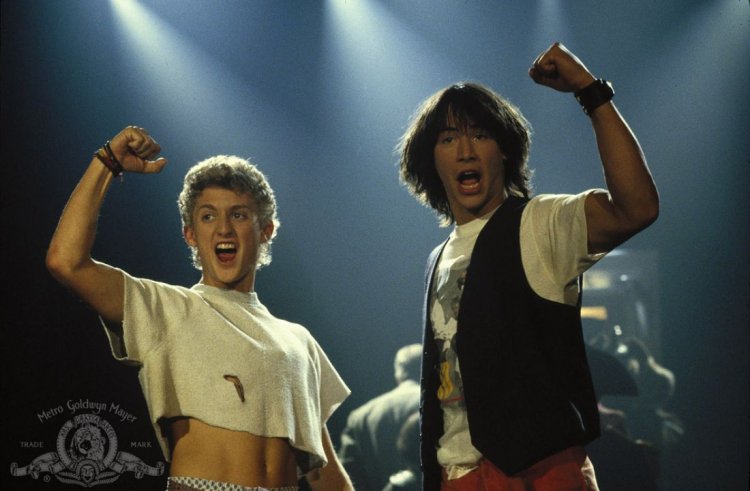
No offense to the Back to the Future series, but the first Bill & Ted movie features one of the most enjoyable depictions of time travel ever. It's difficult to imagine someone coming up with this idea today because it has a vintage feel and is so purely zany. In order to complete a history project successfully, the title characters, two high school students from California in the 1980s, travel through time in search of historical figures and then return everything to the present. Genghis Khan and Mozart are found in sporting goods stores, respectively. High jinks follow! What more could one ask for?
Add Block
See You Yesterday (2019)
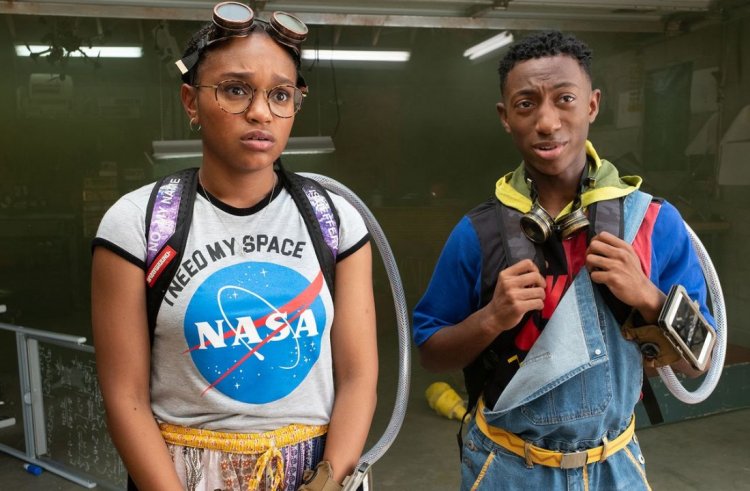
The fact that time-travel movies typically feature pretty white casts is a dirty little secret. Despite Tenet's Protagonist, it is almost certain that Hollywood is not sending a Black person through time for the following reasons: nearly all of post-contact See You Yesterday is all the more compelling given how unfriendly North American history has been to people of color. It follows a Black teenage science prodigy who uses a time machine to try to prevent her brother from being killed by a police officer. The difficulties a person traveling through time and space will face are further complicated by the likelihood that they will become the target of racist abuse or violence. The film was produced by Spike Lee and featured one of cinema's most well-known time travelers in a cameo role.
Add Block
Back to the Future Part II (1989)
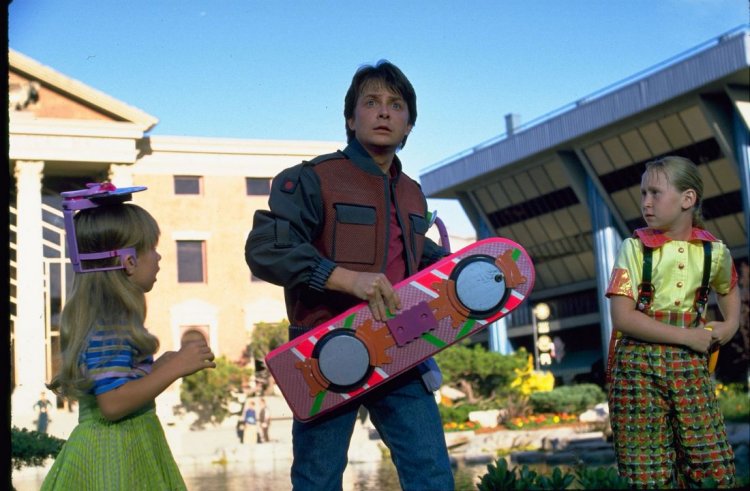
Sincerely, this might be the only enjoyable movie in which using a time machine to travel into the future is the main plot device. It's telling that it's a sequel because the characters went into the past in the first film, but the third movie in the trilogy will "travel even further into the past," according to the filmmakers. Even so, Back to the Future Part II is a good time that enjoyably employs sight gags and references, setting scenes from the original movie in the far-off year of 2015 with all its hoverboards and self-lacing Nikes.
Happy Death Day (2017)
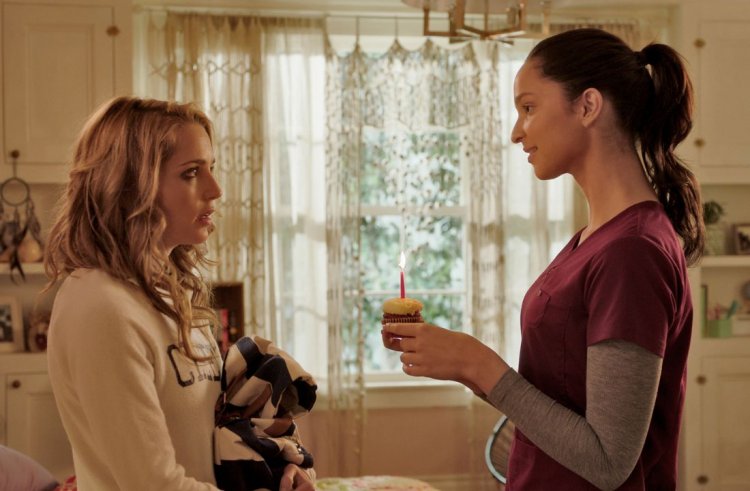
A horror film can be found if you scratch beneath the surface of a time-loop movie. The majority of the items on this list have enough sentimental overtones to qualify as comedies. Still, Happy Death Day confronts head-on the terrifying reality of the time-loop occurrence. (It's also rather humorous.) Repeating the same day is an incredibly powerful form of psychological torture, and adding murder to the mix doesn't do much to lessen its impact. The movie centers on a college-age protagonist who is trying to figure out how she got caught in a time loop while fleeing from a masked killer who is hell-bent on killing her repeatedly.
Galaxy Quest (1999)
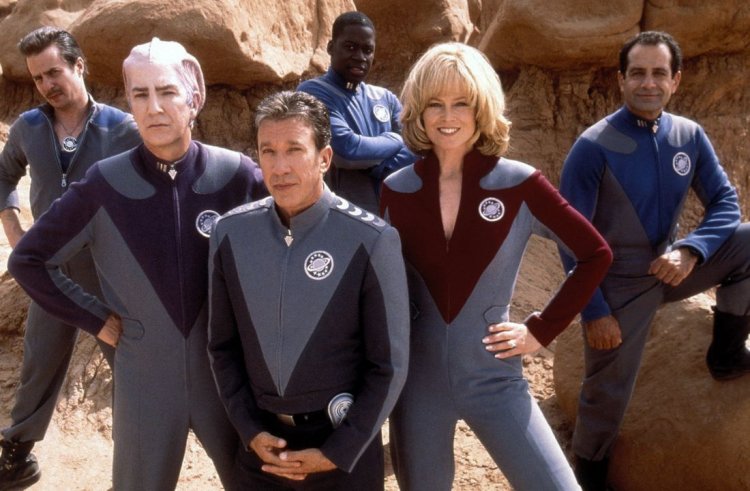
Is Galaxy Quest actually a time-travel film? Several strong arguments suggest that it doesn't: The plot doesn't heavily rely on time travel, and when it does happen, it only involves a 13-second jump. However, the movie's use of time travel is significant in that it is a loving parody of Star Trek, which also uses time travel in dozens of episodes across its various TV iterations and in three of its films (one of which made this list). The perfect amount of sarcasm in a film that is as on point as it is hilarious is to add time travel as a deus ex machina for the actors in a Star Trek-like show forced into service as an actual space crew by an endangered alien race.





